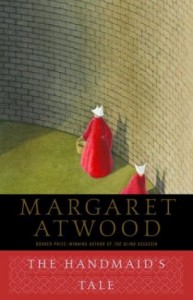 During a contentious meeting Tuesday night that dragged on for six hours, California’s Conejo Valley school board passed a new ‘red-flagging’ policy that will require high school English teachers to warn parents of any assigned book considered to have “mature content.” The final written text of the policy was not released to the public before the vote, as board member Sandee Everett made multiple last-minute verbal amendments.
During a contentious meeting Tuesday night that dragged on for six hours, California’s Conejo Valley school board passed a new ‘red-flagging’ policy that will require high school English teachers to warn parents of any assigned book considered to have “mature content.” The final written text of the policy was not released to the public before the vote, as board member Sandee Everett made multiple last-minute verbal amendments.
Conejo Valley Unified School District first came to the attention of intellectual freedom advocates this past summer, when board president Mike Dunn refused to even schedule a vote on routine approval of Sherman Alexie’s The Absolutely True Diary of a Part-Time Indian for use in the curriculum during the current school year. The board finally did hold that vote in August with Dunn casting the lone vote against the book, but by then it was too late for teachers to include it in lesson plans for the Fall 2017 semester.
A new twist in the saga began last month when duelling committees–one made up of teachers, a principal and administrators, and another comprising just two board members–met separately to draw up new policies on alternate reading assignments to be offered when a parent or student objects to the primary text.
But multiple teachers say that board member Everett, a member of the latter committee, instead took on a major curricular overhaul well outside the scope of her stated task. The policy that she wrote, which was disavowed even by her fellow committee member Pat Phelps, will require that teachers notify parents of any assigned books “that have been identified by the California Department of Education [CDE] as having mature content.”
The policy is referring to CDE’s Recommended Literature List which includes a disclaimer of sorts on books that were published for the adult market, as opposed to Young Adult or Juvenile:
This book was published for an adult readership and thus contains mature content. Before handing the text to a child, educators and parents should read the book and know the child.
Under the newly passed policy, high school English teachers in the Conejo Valley district will be required to mark those books with an asterisk on their syllabi and add a footnote with the same wording as the CDE disclaimer. All students will be required to return the syllabus with a parent or guardian’s signature before they can read the books for class. Out of 216 fiction and nonfiction books so identified on the statewide master list, 10 are currently in use in the CVUSD curriculum and will henceforth bear the asterisk:
- I Know Why the Caged Bird Sings by Maya Angelou
- Bless Me, Ultima by Rudolfo Anaya
- Bless the Beasts and the Children by Glendon Swarthout
- Thousand Pieces of Gold by Ruthanne Lum McCunn
- The Bluest Eye by Toni Morrison
- The Catcher in the Rye by J.D. Salinger
- Snow Falling on Cedars by David Guterson
- The Things They Carried by Tim O’Brien
- The Kite Runner by Khaled Hosseini
- The Handmaid’s Tale by Margaret Atwood
Amidst the confusion of Tuesday night’s meeting, where board members received the latest text of the policy only two hours in advance and the public not at all, teachers’ union president Randy Smith said in frustration that “nobody knows what to make of it because no one knows what’s in it. The board has taken us into uncharted territory.”
In a scathing editorial last week prior to the vote, the Thousand Oaks Acorn newspaper laid out the essential problem with ‘red-flagging’ policies like this one:
This preemptive approach would create two categories of books: those parents need to be ‘warned’ about and those they don’t. Inevitably, this will lead to labeling books ‘good’ and ‘bad,’ and eventually, teachers may be reluctant to teach some award-winning works altogether because they fall into the latter category. We’re sure the CDE never had that in mind when they made the annotations.
Although this is not the outright banning of books, it is indeed a form of censorship, only the slow-burning kind.
Due to the irregularities in the way the policy was written, considered, and passed, opponents have a chance to overturn it with a legal challenge under California’s open meetings law for local legislative bodies. Any such proceedings will likely take some time, however–stay tuned for updates!
Help support CBLDF’s important First Amendment work in 2017 by visiting the Rewards Zone, making a donation, or becoming a member of CBLDF!
Contributing Editor Maren Williams is a reference librarian who enjoys free speech and rescue dogs.